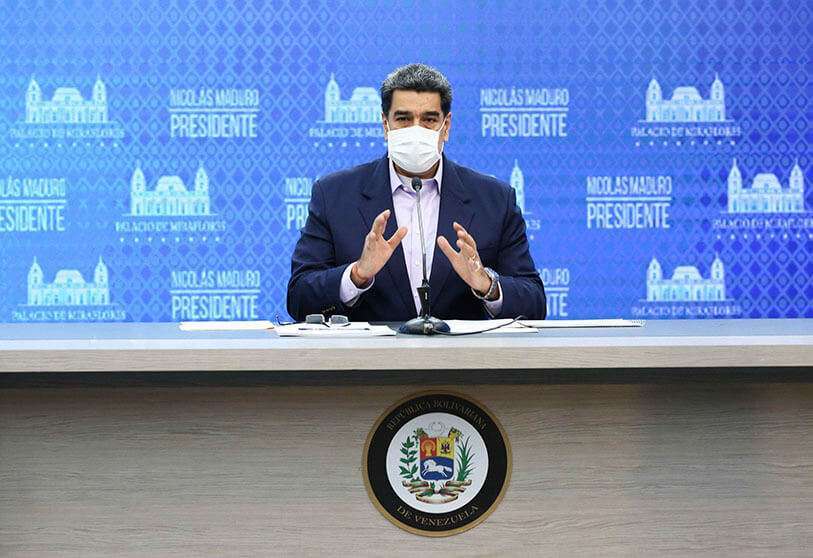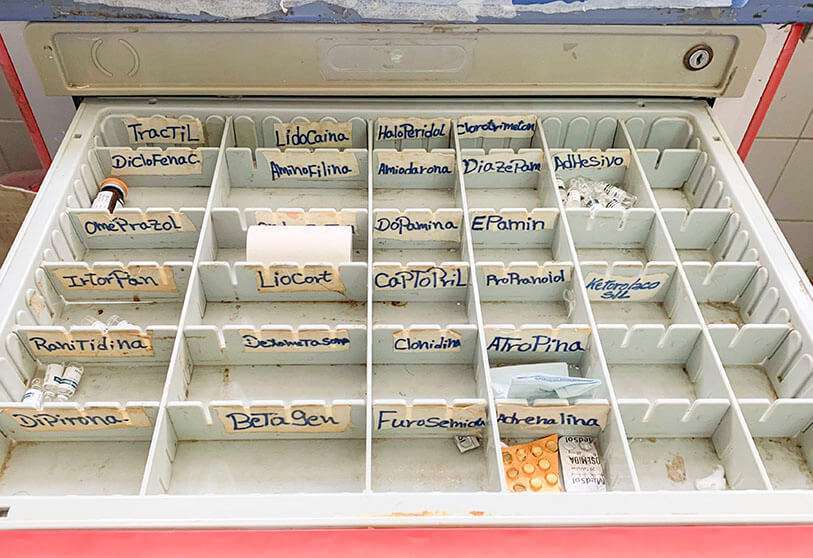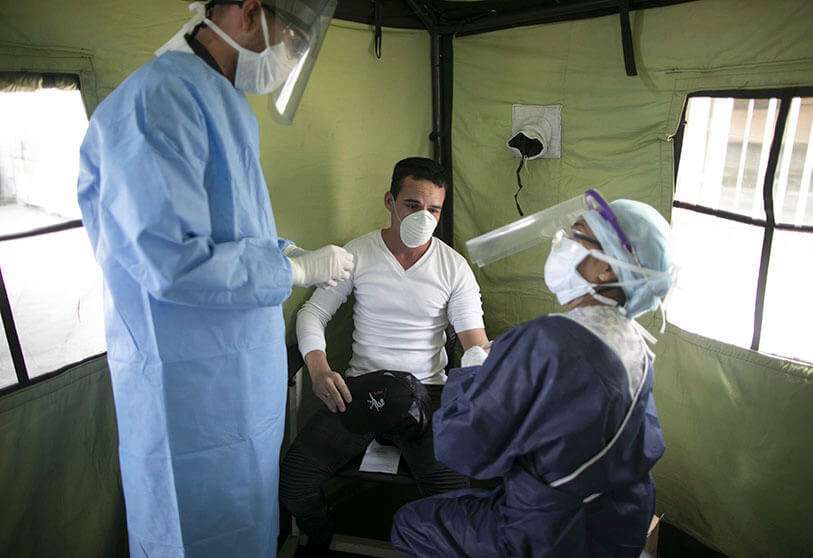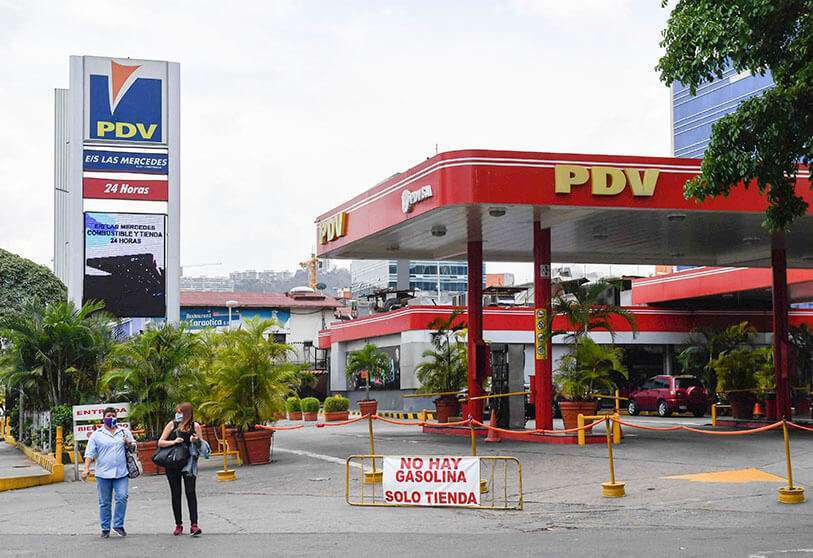The lack of political transparency in Venezuela during the time of the COVID-19

The coronavirus has spread through Latin America at an especially rapid rate in May, to such an extent that the World Health Organization has positioned this region as the new global epicentre of the pandemic. Widespread shortages of medical supplies or other basic goods, or the food insecurity that characterized Venezuela before the arrival of this pandemic, have made the Latin American nation one of the worst equipped to deal with the COVID-19. The Government led by Nicolás Maduro has denied for years the existence of a humanitarian crisis. However, the arrival of this pathogen and the collapse of oil prices have forced it to seek help abroad, mainly from its political allies (Russia, China, Iran and Cuba) and the United Nations. The Government's request to the UN opens a door of hope for humanitarian organizations to send aid to the civilian population of this country.

Latin America has become the new global epicentre of the pandemic. Brazil, the continent's largest country, is the most affected nation. In the case of Venezuela, 135 new cases of COVID-19 were reported on Thursday, bringing the total number of infections to over 2,000. In a televised speech, Maduro announced the detection of a "large outbreak" of the disease in a Pemón indigenous community living in the Amazonian state of Bolívar, located in the south of the country. In this scenario, WHO experts fear that the data are "inaccurate or incomplete" and that, as a result, the number of deaths and infections will be much higher. The Venezuelan Academy of Physical, Mathematical and Natural Sciences has published a report denouncing that the low number of infections from this disease seems "inconsistent", compared to the real scale of the epidemic. In response, the country's authorities have called for an investigation of the agency.
The Venezuelan Ministry of Health stopped publishing epidemiological bulletins in May 2017. The latest available government statistics for 2016 reported a 30 percent increase over the previous year in infant mortality, according to data accessed by The New Humanitarian website. Given this situation, the United Nations has decided to support the health authorities of the nation presided over by Nicolás Maduro by expanding efforts to prevent and control the outbreak of COVID-19 and improving access to medical care and water supply in the country. This plan focuses mainly on strengthening the health system and includes various actions, such as providing hygiene in hospitals or giving objective information to society in order to prevent the spread of the virus and misinformation. In April alone, the UN and other humanitarian partners assisted 860,000 people, more than 50 percent of whom were women.

The humanitarian emergency that the country is experiencing with this pandemic has led Maduro's government and the country's opposition, led by Juan Guaidó, to sign an agreement with which they plan to have the Pan American Health Organization (PAHO) manage money and other aid to improve health care with respect to the coronavirus. "Both parties propose to work in coordination with the support of the PAHO in the search for financial resources that will contribute to strengthening the country's response capabilities to deal with the health emergency caused by the pandemic," announced Communications Minister Jorge Rodríguez.
In this scenario, health workers and journalists have become the main spokespersons of Venezuelan society, although they also constantly face censorship when trying to give accurate data on the spread of the new coronavirus. The newspaper El Nacional reported a few hours ago that a journalist from the radio station Candela91.9 FM was arrested for having recorded an argument between the military and citizens at a service station.

Humanitarian organisations warn that the lack of real data prevents them from being effective in helping the population. "We are in the dark. Citizens do not know what is happening in Venezuela, and there is no truthful information for the NGO sector," Beatriz Borges, executive director of the Center for Justice and Peace, a Venezuelan human rights organization known as CEPAZ, told The New Humanitarian.
Censorship has become a constant within the media, which also has to constantly check information, verify each and every statistic that is published, and even create their own surveys to obtain more realistic statistics on the impact of this disease. "The authorities hide statistics and vital population data. In recent years, such opacity has prevailed as government policy. Nor do we know the current statistics on malaria, measles, diphtheria, HIV and infant mortality," said Mariana Souquett, a journalist with an independent Venezuelan media outlet focused on human rights called Efecto Cocuyo, according to statements gathered by the aforementioned media organization.

This situation impedes the ability of NGO workers to develop appropriate public policies to help those who need it most. These organizations have tried to explain to the authorities that, without accurate data, the real problems cannot be identified in order to plan a response. While these people are trying to improve the lives of the citizens of the Latin American nation, they have to face the fear of being arbitrarily detained at any time. The Penal Forum, a non-governmental organization that leads the defense of those considered political prisoners in Venezuela, denounced last April that arbitrary detentions in the country had increased since the state of alarm over the coronavirus was established. According to the data published by this organization in April, there are 335 persons deprived of their liberty for political reasons in Venezuela, 214 civilians and 121 military personnel.
Before the arrival of the coronavirus, up to 2.4 million people received humanitarian assistance under the 2019 Humanitarian Response Plan. Fuel shortages affected humanitarian access and the delivery of assistance in border and remote areas. Humanitarian partners have insisted in recent years that operational and security conditions on the ground, mainly in states such as Bolivar, Tachira or Zulia, continue to suffer from power cuts, telecommunication problems, water access or the activities of organized crime groups. According to the Food and Agriculture Organization of the United Nations (FAO), due to the general lack of access, Venezuela is among the 42 countries worldwide that need external aid for food. The situation changed completely with the arrival of this virus in Latin America. On 16 March, Maduro's regime announced restrictions on movement between Venezuelan states and cities to contain the spread of the virus. The next day, his government suspended all international travel and decreed the closure of the borders with Brazil and Colombia.

This scenario makes it impossible for NGOs to analyze where the needs are. "The possibilities of obtaining information from independent sources, such as technical groups working in the field of information management, are very difficult. We try to get information from the field, but given the risks and constraints, getting this information is risky," Feliciano Reyna, director of Acción Solidaria, a Caracas-based non-profit organization, told The New Humanitarian. Under the circumstances, an increasing number of institutions and agencies have decided to start developing their own statistics to evaluate the country's needs.
Meanwhile, the dispatch of the ships and the rapprochement between Iran and Venezuela, both members of OPEC, has caused diplomatic tensions in the region, to such an extent that the United States has decided to sanction four shipping companies for bringing oil to the Latin American nation. A few hours ago, the Venezuelan leader announced that he would soon travel to Teheran to sign a major bilateral agreement, thus challenging the US embargo on both states.

The increase in tension and the number of arrests, the lack of data, the various logistical challenges related to delays in the importation of some supplies; along with other diseases such as measles or dengue fever are just some of the challenges that humanitarian organizations are facing as they try to work in Venezuela, a country that has been in a triple crisis (political, economic and social) since 2013. If Venezuela has already had to face problems such as shortages of basic products, fiscal deficits and inflation, the fall in oil prices in recent years and the arrival of the coronavirus have further worsened the economic situation that punishes the Bolivarian nation.









